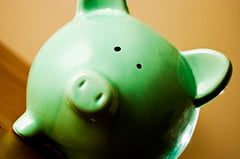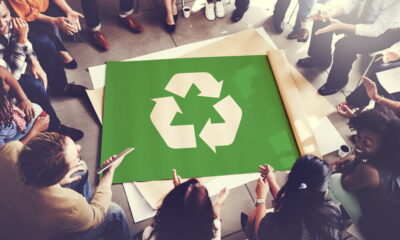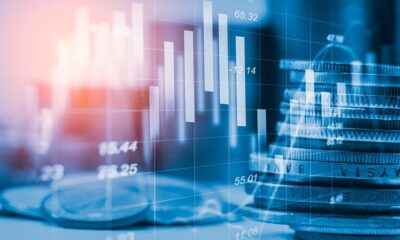

Economy
Blue Planet Prize group calls for dramatic action in wealth measurement
In the run up to this summer’s Rio+20 Earth Summit, a new report further supports the concept that countries must start taking into account environmental and societal factors, not just gross domestic product (GDP), when measuring wealth.
The paper, which will be part of the Rio+20 Earth Summit taking place in the summer, says, “In the face of an absolutely unprecedented emergency, society has no choice but to take dramatic action to avert a collapse of civilisation. Either we will change our ways and build an entirely new kind of global society, or they will be changed for us.”
In the run up to this summer’s Rio+20 Earth Summit, a new report further supports the concept that countries must start taking into account environmental and societal factors, not just gross domestic product (GDP), when measuring wealth.
The paper, which will be part of the Rio+20 Earth Summit taking place in the summer, says, “In the face of an absolutely unprecedented emergency, society has no choice but to take dramatic action to avert a collapse of civilisation. Either we will change our ways and build an entirely new kind of global society, or they will be changed for us.”
The research was written by the past 18 winners of the Blue Planet Prize, dubbed the unofficial Nobel Prize for the environment. The report will be presented to Government ministers meeting in Kenya as part of the United Nations Environment Programme (UNEP).
At the moment, gross domestic product (GDP), which measures economic output, is used as the main measure of wealth. The research paper insists that the wealth of a country needs to be judged on something beyond the tracking of simple economic growth.
The paper explains why the system needs to change:
“The perpetual growth myth is enthusiastically embraced by politicians and economists as an excuse to avoid tough decisions facing humanity. This myth promotes the impossible idea that indiscriminate economic growth is the cure for all the world’s problems, while it is actually (as currently practised) the disease that is at the root cause of our unsustainable global practises.”
There have been other calls for the Rio+20 summit to be the tipping point for a change to the economic system. Last month, the UN released a report listing a number of recommendations would help make sustainable development mainstream.
Connie Hedegaard, EU commissioner for climate change, said the Rio+20 talks are “an opportunity to rethink” and change the way the economy currently works.
UK environment secretary, Caroline Spelman, recently set out her targets for the sustainable conference. She called for countries to move away from using GDP as an indicator of progress. This would be replaced by GDP+ which also values natural resources and the wellbeing of people.
The environment secretary said, “It is becoming more and more apparent that GDP is not a perfect measure of progress, because it deals solely with economic output. It does not consider the other factors that contribute to sustainable growth such as natural resource, or social wellbeing.”
As well as replacing GDP the paper has a number of other recommendations for Governments. These include tackling overconsumption and investing more into research and training.
The report has a strong message, “The time to act is now … failure to act will impoverish current and future generations”. If you want to contribute to this change, then speak to your IFA about ethical investment opportunities. If you don’t have an IFA, then fill in our online form and we’ll connect you with a specialist adviser.
Related articles:
Rio+20 plans to overthrow the idea of growth


 Environment12 months ago
Environment12 months agoAre Polymer Banknotes: an Eco-Friendly Trend or a Groundswell?

 Features11 months ago
Features11 months agoEco-Friendly Cryptocurrencies: Sustainable Investment Choices

 Energy11 months ago
Energy11 months agoThe Growing Role of Solar Panels in Ireland’s Energy Future

 Energy12 months ago
Energy12 months agoHow Renewable Energy Can Help Combat Climate Change, According to Indra Energy


























